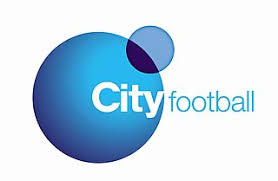City Football Group (CFG)’s business strategy always seemed rather baffling. Yes, OK, assemble a collection of similar businesses – in this case football clubs – inside the same tent and you can shave back-office costs. You might be able to engineer a less wasteful talent development pipeline than one-legged rivals. And if the real aim is soft power, well, the Abu Dhabi flag has been well and truly planted in outposts of the beautiful game from Melbourne to Mumbai.
In purely commercial terms, however, CFG is very much Snow White (ie Manchester City – annual revenue £535.2 million) and the seven dwarves.
What is more, as the globalisation of the planet’s biggest sport has gathered pace over the past 10-15 years, it has seemed increasingly plain that the main vector of this globalisation was, and would continue to be, the four main West European leagues, in particular the Premier League and La Liga.
With interests in one of the biggest fish in England and a smaller one – Girona – in Spain, why would CFG bother with the other small fry? Especially bearing in mind its 2017-18 loss from continuing operations of close to £45 million?
As streaming is starting to take over from TV, however – and as one of the shining stars of private equity, a sector not noted for its patience, Silver Lake, has seen fit to shell out half a billion dollars for just over 10% of CFG – the strategy may be starting to make sense, as a hedge against inflated media rights values.
There seems no intrinsic reason why the technology switch should cut the value of the biggest games. Au contraire, ease of access might mean even more people worldwide decide to watch El Clásico or the Manchester derby.
The issue is more one of bundling: if you pay a monthly Premier League subscription the better to follow your club or ensure you never miss Arsenal v Spurs or Liverpool v Man U, you will probably often decide to tune in to Bournemouth v Brighton or Everton v Newcastle as well. I mean, why not if you have nothing better to do? There is no financial disincentive.
But what if you can now opt for, say, the Milan derby or Bayern v Borussia Dortmund at little or no extra cost? And what if the “Hey Doris” moments from any game can be picked up for free within minutes of them happening in any case? The music industry has already lived through a similar transformation, with consumption focused on individual songs, rather than, as in my day, albums, which often contained the Valladolid v Getafe of any given artist’s output, as well as the Real v Atleti that made you want to buy the record in the first place.
Several of the CFG clubs are in markets – Japan, the United States, Australia, China, now India – that are populous and/or have high or increasing disposable incomes. Their domestic league structures are, moreover, at a much earlier stage of development than in Western Europe. Media rights values are at nowhere near the stratospheric levels of the Premier League, and even if their growth is constrained by similar factors to those affecting the big boys, there is plenty of scope for other income streams – sponsorship, hospitality, merchandising – to crack on.
And you can see this happening even if local fans remain besotted with the likes of Barcelona and Juventus. After all, nobody decrees that you may only watch one football match a week and though the seamless market for talent means sports fans from dozens of countries can follow the fortunes of their own local heroes in the big leagues, they will very rarely be able to see them play for their clubs in the flesh, least of all in matches that count for anything.
This points to the wisdom of the lesser lights in the CFG firmament making stadium experiences as attractive and exciting as possible – another area where central planning can help to ensure that the best ideas are quickly disseminated throughout the group.
In short, while the Premier League and La Liga are set to remain top of the pile, the yawning commercial gap between them and their aspirational counterparts in Asia and North America may narrow. Yes, the popularity of the UEFA Champions League, and the revamped FIFA Club World Cup, may further enhance the international earning power of the top 12-15 clubs, including Manchester City, enabling them to offset any stagnation or decline of their domestic media revenues. But this may also destabilise the current structure of the European club game, breeding uncertainty and therefore risk.
In such a climate, CFG’s portfolio approach may come to look reassuringly dependable in the maelstrom.
David Owen worked for 20 years for the Financial Times in the United States, Canada, France and the UK. He ended his FT career as sports editor after the 2006 World Cup and is now freelancing, including covering the 2008 Beijing Olympics, the 2010 World Cup and London 2012. Owen’s Twitter feed can be accessed at www.twitter.com/dodo938.

